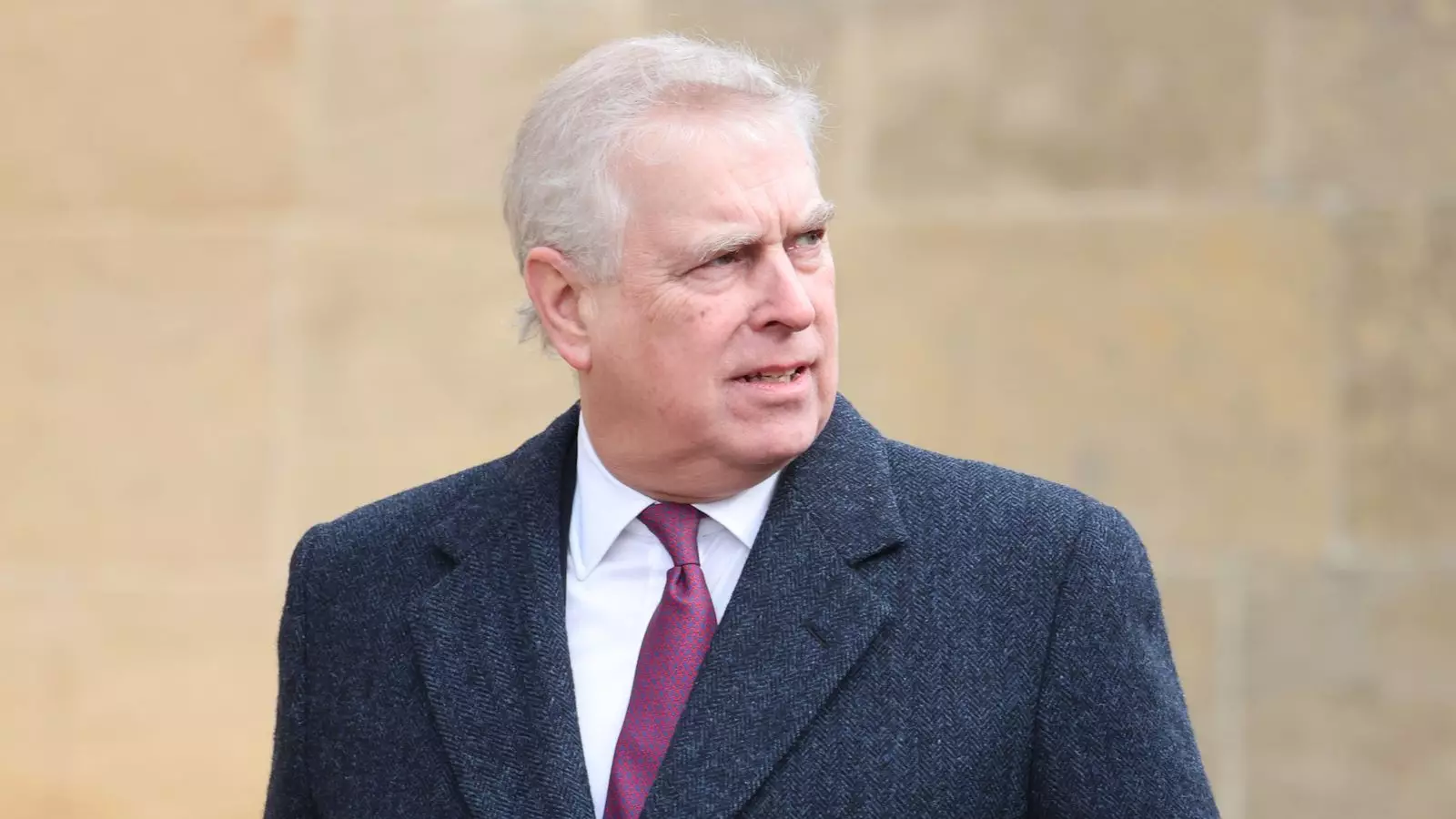The ramifications of Prince Andrew’s connections to business figures accused of espionage have stirred significant controversy and concern within the United Kingdom’s political landscape. The Duke of York, at the center of this storm, announced that he had severed ties with a businessman linked to espionage allegations after receiving governmental advice. This decision arrived following revelations regarding the individual’s barred entry into the UK due to national security risks, casting a long shadow over Andrew’s already tarnished reputation.
Andrew’s proactive measures to terminate their relationship reflect a growing awareness of the scrutiny he faces, particularly in light of previous scandals that have already challenged his standing in royal duties. Despite stating that no sensitive discussions took place during their acquaintance, the very existence of such relations raises poignant questions regarding the Duke’s discernment in aligning himself with questionable figures.
The businessman in question, referred to as H6, becomes the focal point of these allegations. It was reported that Andrew had previously invited H6 to his birthday celebration in 2020, positioning him as someone who could ostensibly facilitate connections with Chinese investors. The Home Office’s determination to bar H6 arrived after concluding that he had been involved in “covert and deceptive activity” on behalf of the Chinese Communist Party, a claim that H6 has contested vigorously, deeming the ban unlawful.
This situation escalated as the Special Immigration Appeals Commission (SIAC) upheld the exclusion of H6 from the UK, indicating that Prince Andrew could be perceived as “vulnerable” due to his association with a man involved in national security matters. These findings not only reflect poorly on Andrew but also illustrate a broader concern over the potential repercussions of these relationships on British diplomacy and security.
For Prince Andrew, the watchful eyes of the public and officials are not new. His previous public disgrace, tied to his friendship with the convicted sex offender Jeffrey Epstein, resulted in the Duke stepping down from public duties and the stripping away of various royal patronages and military affiliations. Now, confronted with allegations of espionage, Andrew’s already beleaguered status is further compromised, putting into question his future within the royal institution.
Many have criticized Andrew’s judgment, suggesting that he has repeatedly put himself in situations that could cause embarrassment to the monarchy. The latest claims of linking with a possible Chinese spy only serve to amplify concerns regarding his credibility and decision-making, once again leading to speculation about his potential rehabilitative path within royal circles.
The Broader Implications
The implications of this situation reverberate beyond Andrew himself. With the geopolitical climate between the UK and China increasingly fraught, any suggestion of espionage travels heavily through the corridors of power and public discourse, possibly impacting diplomatic relations. The statement from the Chinese embassy denying the accusations and condemning the creation of “spy stories” highlights the delicate nature of international relations and the potential ramifications of such allegations.
Furthermore, the matter of Prince Andrew raises important discussions about the responsibilities of public figures to maintain the integrity of their affiliations. The expectation from the public and the monarchy rests on royal family members to uphold a standard that reflects positively on their institutional roles. With Prince Andrew’s history, this expectation is severely under threat.
While Prince Andrew maintains that he has not engaged in any “sensitive” discussions with his alleged contact, the mere association breeds suspicion and fuels a narrative far removed from the glamorous image the royals tend to project. The Duke’s claims do little to alleviate the underlying concerns regarding judgment and responsibility in maintaining national security, especially against a backdrop of previous scandals that have already shaken public confidence in his role.
As new layers of political and personal complexities unfold surrounding Prince Andrew and his associates, the need for transparency and accountability within royal public service has never been more critical. The British public and its leaders must grapple with the potential consequences of these relationships, given their profound implications for the monarchy’s integrity and the nation’s security.


Leave a Reply